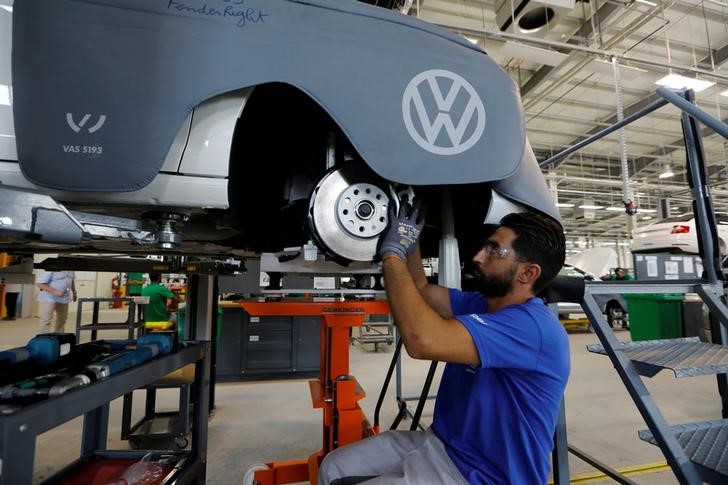By Geoffrey Smith
Investing.com -- Activity in Europe's largest manufacturing economy improved in November for the first time since Russia's invasion of Ukraine, according to a closely-watched business survey.
The manufacturing purchasing managers index compiled by S&P Global rose to 46.7 from 45.1 in October, defying expectations of a further decline but remaining clearly below the 50 level that typically separates growth from contraction.
The comparable index for the services sector also improved surprisingly, leading the composite PMI to rebound to 46.4 from 45.1.
“November’s flash PMI survey doesn’t alter the narrative that Germany is likely heading for a recession, but it does offer some hope that the contraction in the economy will perhaps be shallower than first feared," S&P economist Phil Smith said in a statement.
S&P noted that companies reported a clear slowdown in the rise of input prices that has dogged industry all year. It said goods producers reported an outright improvement in lead times on inputs for the first time since July 2020, thanks to "improved material availability."
That is consistent with anecdotal reports from individual companies such as Siemens (ETR:SIEGn) that showed a clear easing of supply chain bottlenecks in the last few months.
Consequently, input costs rose at the slowest rate since the middle of last year, S&P noted.
"We'll still get a recession, but not a collapse," tweeted Commerzbank Chief Economist Joerg Kraemer, who put the improvement down to increased signs that Germany will get through the coming winter without having to resort to gas rationing.
After much debate, the German government finally agreed on draft legislation this week that will cap household gas bills through the winter. Households and small businesses will pay a flat rate for 80% of their consumption, while remaining exposed to the market price for the remaining 20%. Industry will likewise be able to pay no more than 7c a kilowatt-hour for 70% of its consumption, paying the market price for the rest.
